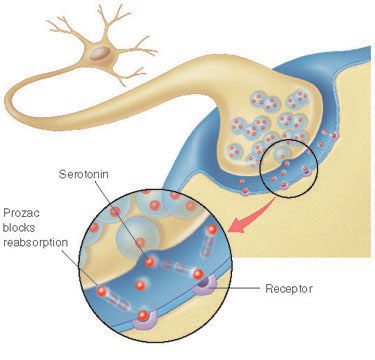Serotonin
The Serotonin, also termed as 5-hydroxytryptamine is a hormone in the pineal gland, the central nervous system, the digestive tract, and blood platelets. The Serotonin is a neurotransmitter - which is a chemical substance which transmits nerve impulses across the space among nerve cells or neurons. The hormone is a substance our body produces which regulates and controls the activity of certain organs or cells.
The molecular formula of serotonin is as follows : C10H12N2O.
Serotonin plays a significant part in the regulation of mood, learning, sleep and vasoconstriction. The modifications in serotonin levels in the brain might affect mood. Several antidepressant medications affect the action of serotonin that is they are used to treat the depression.

Around 80% of our body's total serotonin is in the gut, in the enterochromaffin cells - wherever it regulates the intestinal movements. The remaining is synthesized in the serotonergic neurons in the central nervous system. In addition to humans and animals, serotonin is also found in plants and fungi.